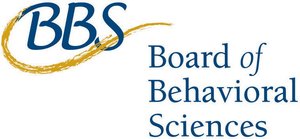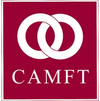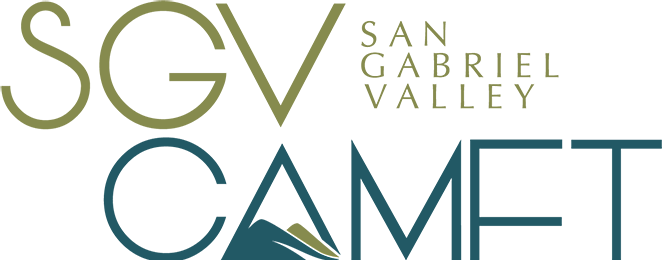|
When therapists talk about how to make their practices more successful, the first thing they want to know is how to get more clients and referrals.
Good question, right? The best answer about how to get the word out about you, your practice, and your work so you can get more paying clients, is to make sure your practice and contact information is clear and readily accessible to potential clients, colleagues, and referral sources whenever they need it. It’s a well-known fact that prospective clients and referral sources will only contact you if they know what your services are and they can easily locate your phone number to call or text to you—or your email or social media page to write or message you. Pre-Covid, when professionals did a lot of face-to-face networking, business cards usually did the job of getting a therapist’s name, services, and contact information in front of people. Online, websites, directory listings, and social media pages did the heavy lifting of providing the therapist’s contact details so people could connect with them and make an appointment. With so many professional events happening virtually now, it’s rare for therapists to exchange business cards, flyers, and practice swag—pens, note pads, Post-its—so a clinician’s contact details aren’t always close at hand. Yes, the information is still online for people to look up with Google or another search engine but that takes another few clicks and more time. People are in a hurry and impatient these days. Think about how many times someone has emailed you or you read an email and wanted to contact the person by phone or text or look at their website or social media and none of that information was available, sometimes not even their last name because their email address didn’t include their full name either. Did you do a search or did you skip it? Most people skip it so these referrals and opportunities are lost. What can a therapist do today to get their practice information and contact details out and in front of everyone’s eyes so their services are always top of mind and people can easily access the details whenever they have a question, want to connect, send a referral, talk to you about an opportunity or schedule a session? Here’s where email signatures shine bright today. Email signatures are the savvy clinician’s new secret weapon for convenient online professional networking and practice marketing. Think about it. How many emails are you sending and receiving these days? Each person you write or reply to professionally or in your community has the power to become a referral source or a client—but only if they have the right information about your practice and how to contact you. Today, the quickest, easiest, and most cost-effective way to disseminate your contact information, let people know about your work, and fill your practice, is to make the most of your email signature. Email signatures are the new business cards. They’re one of the best ways to present you, your services, and your contact information so it’s available whenever needed. A thoughtfully crafted email signature is a small but powerful marketing tool that makes it easy for people to know more about you and what you offer—and to contact you or refer someone to you. It’s a recurring thing that recipients of your emails see over and over again and that develops trust and recognition. What contact info needs to be in an email signature so that prospective clients and potential referral sources can contact you or refer someone to you? Email signatures should include all the ways there are to contact you professionally. Here are some examples. The Basic Email Signature: Include each of these.
The More Complex Email Signature: All the above 1-6 plus any of these that your ideal clients, colleagues, and referral sources use and make it easy for them to contact you.
As you can see from the lists above, the information on your email signature can take many different forms. Depending on your target audience and preferred clients, you can also list new services, special offerings, free consultations, event information, specific blog content, awards, professional association positions, etc. Anything that delivers value to colleagues, prospective clients and referral sources, other professionals, community members, and yes, even friends, neighbors, and relatives, can be embodied in an email signature. It is absolutely amazing how much value can be put into such a few lines at the end of an email. Crafted with your client, services, and profession in mind, your email signature holds the power to create a positive, professional image, and reinforce and extend your branding and marketing efforts. An added bonus is that you don’t have to hire a graphic designer, an app developer or a coder to put together your email signature and add it to your email footer. Additionally, there are plenty of excellent templates, generators, and editors to explore, many which are free. Have some fun exploring other clinician’s email signatures and then crafting your own. Lynne Azpeitia, LMFT, AAMFT Approved Supervisor, is in private practice in Santa Monica where she works with Couples and Gifted, Talented, and Creative Adults across the lifespan. Lynne’s been doing business and clinical coaching with mental health professionals for more than 15 years, helping professionals develop even more successful careers and practices. To learn more about her in-person and online services, workshops or monthly no-cost Online Networking & Practice Development Lunch visit www.Gifted-Adults.com or www.LAPracticeDevelopment.com.
0 Comments
Leave a Reply. |
Lynne Azpeitia, LMFTFor 10+ years Lynne Azpeitia has helped therapists to live richer and happier lives through her workshops, private practice, clinical, and career coaching, and her practice consultation groups which train, support, and coach licensed and pre-licensed therapists, associates, & students how to create and maintain a successful, thriving clinical practice and a profitable and sustainable career, Archives
July 2024
Categories
All
|
Lynne Azpeitia, LMFT (310) 828-7121
AAMFT Approved Supervisor
Coaching Clinicians for Practice & Career Success
Online and In-Person
3025 W. Olympic Blvd
Santa Monica, CA 90404
&
Phone, FaceTime, What's App & Video Sessions Available for Coaching & Psychotherapy
Coaching, Workshops, Training & Consultation
www.lapracticedevelopment.com
Psychotherapy
Online and In-Person
&
Business, Personal, & Creative Coaching
Specializing in Coaching & Psychotherapy for
GIFTED, TALENTED & CREATIVE ADULTS
www.gifted-adults.com
© 2017-2024 Lynne Azpeitia All Rights Reserved






